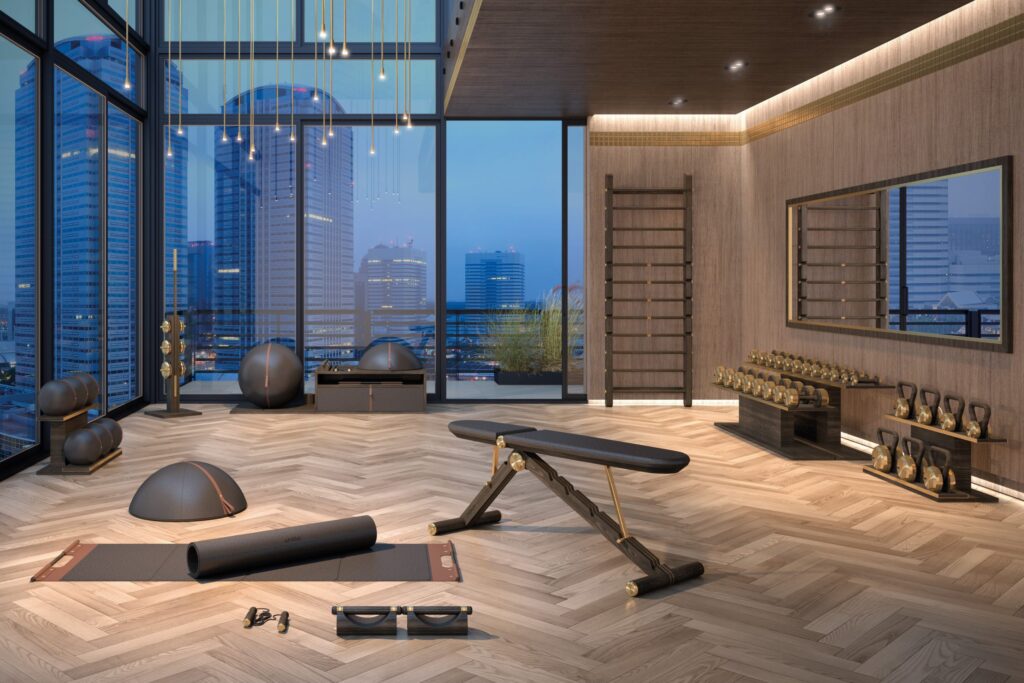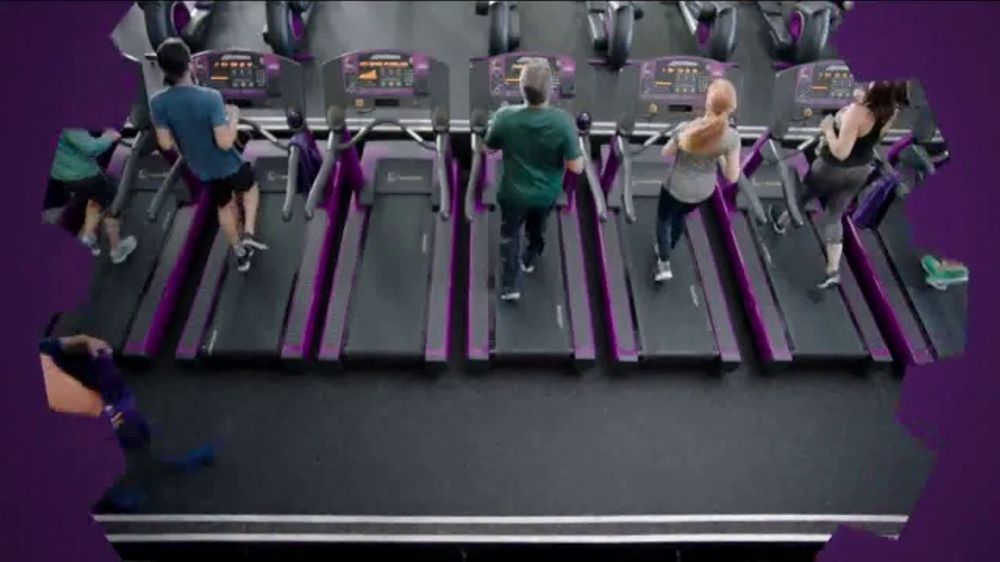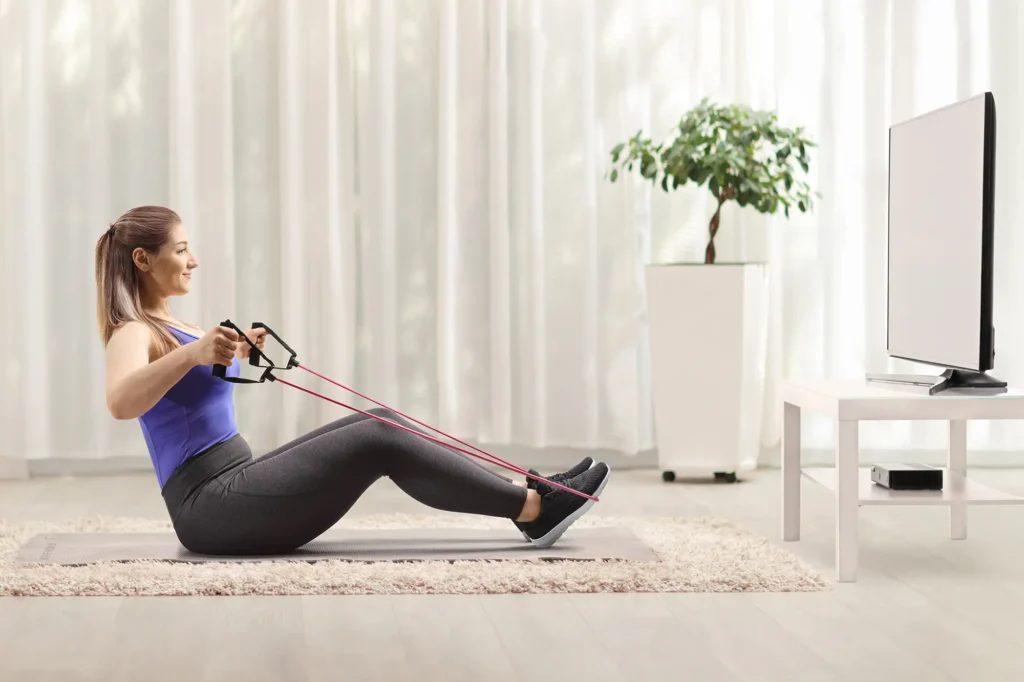In 2025, the decision between setting up a home gym or joining a commercial gym is more relevant than ever. With advancements in fitness technology, changing lifestyles, and evolving health priorities, both options offer unique benefits and challenges. This comprehensive guide explores the pros and cons of each to help you make an informed choice.
Table of Contents



1. Cost Comparison
Home Gym
- Initial Investment: Setting up a home gym can range from $500 to $5,000, depending on the equipment quality and variety. High-end setups with smart equipment can cost even more.
- Long-Term Savings: While the upfront cost is significant, home gyms can lead to savings over time by eliminating monthly membership fees and commuting expenses.
Commercial Gym
- Membership Fees: Monthly fees typically range from $30 to $100, depending on the gym’s location and amenities.
- Additional Costs: Expenses may include personal training sessions, group classes, locker rentals, and transportation.
Verdict: If you’re committed to long-term fitness, a home gym can be more cost-effective. However, commercial gyms offer flexibility without the initial investment.
2. Convenience and Accessibility
Home Gym
- 24/7 Access: Work out anytime without worrying about gym hours.
- No Commute: Save time and energy by eliminating travel.
- Personalized Environment: Customize your workout space to your preferences.
Commercial Gym
- Structured Environment: Dedicated spaces designed for various workouts.
- Amenities: Access to facilities like saunas, pools, and showers.
- Social Interaction: Opportunity to meet like-minded individuals and participate in group classes.
Verdict: Home gyms offer unparalleled convenience, but commercial gyms provide a structured environment that can enhance motivation.
3. Equipment Variety and Quality
Home Gym
- Customized Selection: Choose equipment that aligns with your fitness goals.
- Space Limitations: May not accommodate large or specialized machines.
- Maintenance: Responsible for upkeep and repairs.
Commercial Gym
- Wide Range of Equipment: Access to diverse machines and free weights.
- Regular Maintenance: Equipment is maintained by the facility.
- Upgrades: Gyms often update equipment to the latest models.
Verdict: Commercial gyms offer a broader range of equipment, but home gyms can be tailored to specific needs.
4. Motivation and Accountability
Home Gym
- Self-Discipline Required: Requires personal motivation to maintain consistency.
- Fewer Distractions: Control over the environment can enhance focus.
Commercial Gym
- Community Support: Being around others can boost motivation.
- Professional Guidance: Access to trainers and structured programs.
- Scheduled Classes: Helps maintain a routine.
Verdict: Commercial gyms provide external motivation and accountability, while home gyms require self-discipline.
5. Privacy and Comfort
Home Gym
- Personal Space: Exercise without feeling self-conscious.
- Flexible Attire: Wear what you’re comfortable in.
- Control Over Environment: Choose your music, temperature, and lighting.
Commercial Gym
- Public Setting: May feel intimidating for some individuals.
- Shared Equipment: Waiting times during peak hours.
Verdict: Home gyms offer greater privacy and comfort, making them ideal for those who prefer solitude.
6. Professional Support and Social Interaction
Home Gym
- Limited Access to Experts: Unless you hire a personal trainer, guidance is self-sought.
- Isolation: Lack of social interaction may affect motivation.
Commercial Gym
- Expert Assistance: Access to trainers, nutritionists, and physiotherapists.
- Community Engagement: Opportunities to join classes and meet new people.
Verdict: Commercial gyms provide professional support and social opportunities that can enhance the workout experience.
7. Technological Advancements
Home Gym
- Smart Equipment: Integration of AI and virtual coaching in equipment like Peloton and Mirror.
- Online Platforms: Access to a plethora of online classes and fitness apps.
Commercial Gym
- Advanced Machines: Incorporation of the latest fitness technology.
- Hybrid Models: Offering both in-person and virtual classes.
Verdict: Both settings are embracing technology, but home gyms offer more personalized tech integration.
8. Space and Lifestyle Considerations
Home Gym
- Space Requirements: Needs a dedicated area, which may not be feasible for everyone.
- Lifestyle Fit: Ideal for those with unpredictable schedules or family commitments.
Commercial Gym
- No Space Constraints: Utilize the gym’s facilities without worrying about space at home.
- Routine Integration: Fits well into structured daily routines.
Verdict: Home gyms require space and may suit those with flexible schedules, while commercial gyms are convenient for those with structured routines.
Conclusion
Both home gyms and commercial gyms have their unique advantages and challenges. Your choice depends on personal preferences, lifestyle, budget, and fitness goals.
- Choose a Home Gym If:
- You value privacy and convenience.
- You have space and are willing to invest upfront.
- You prefer a personalized workout environment.
- Choose a Commercial Gym If:
- You seek variety in equipment and professional guidance.
- You thrive in social settings.
- You prefer a structured environment with scheduled classes.
Ultimately, the best gym is the one that aligns with your needs and keeps you motivated to achieve your fitness goals.

